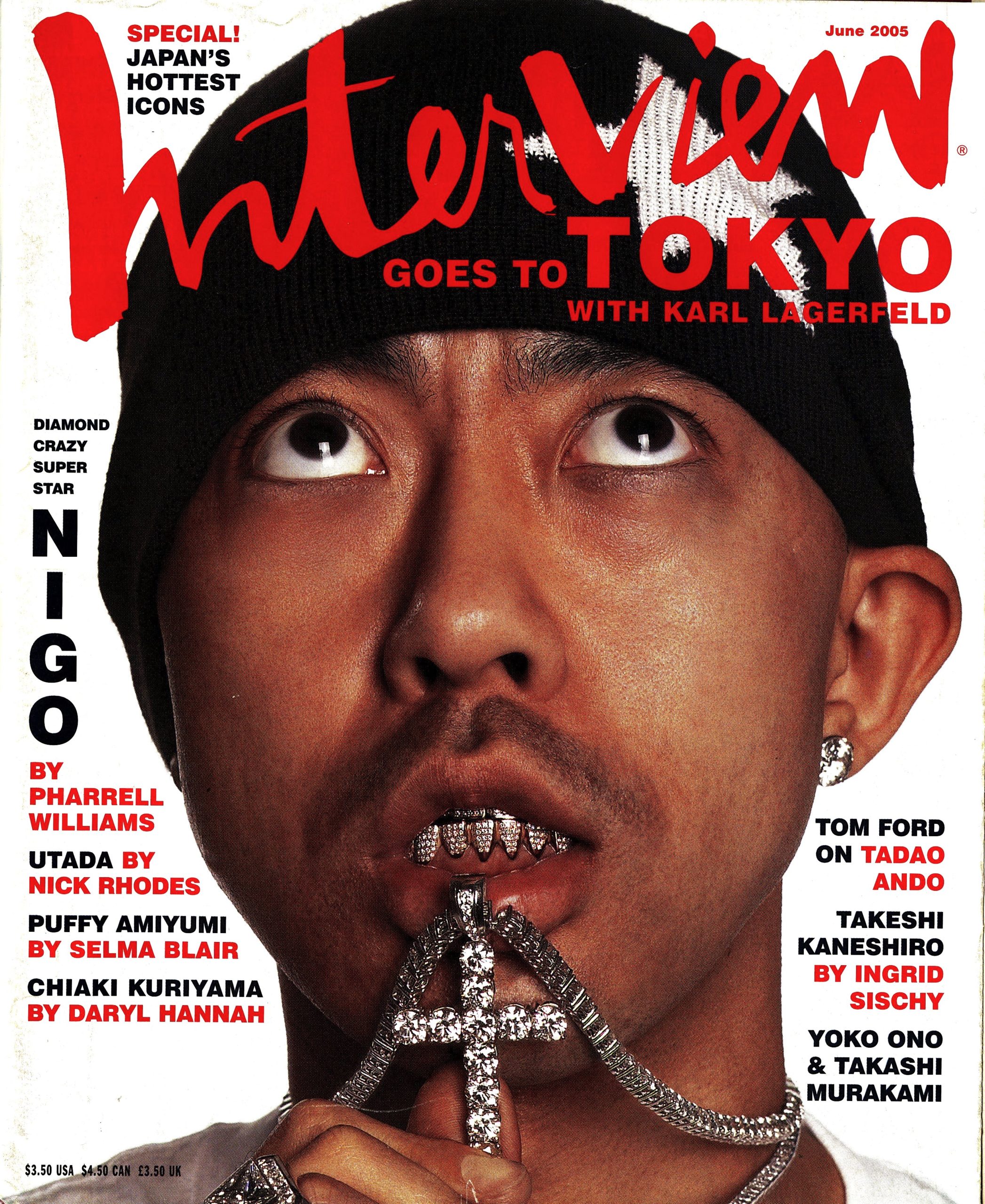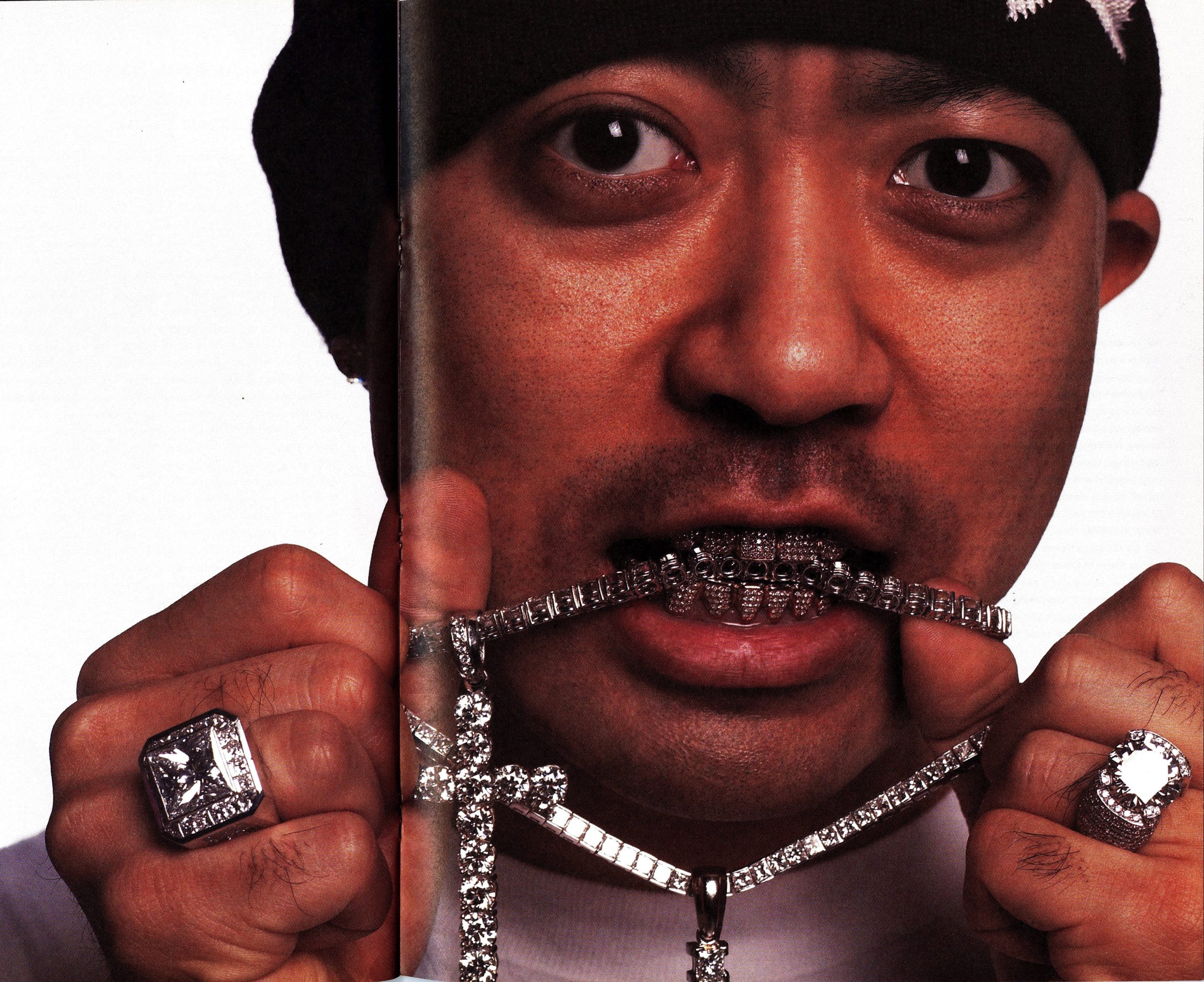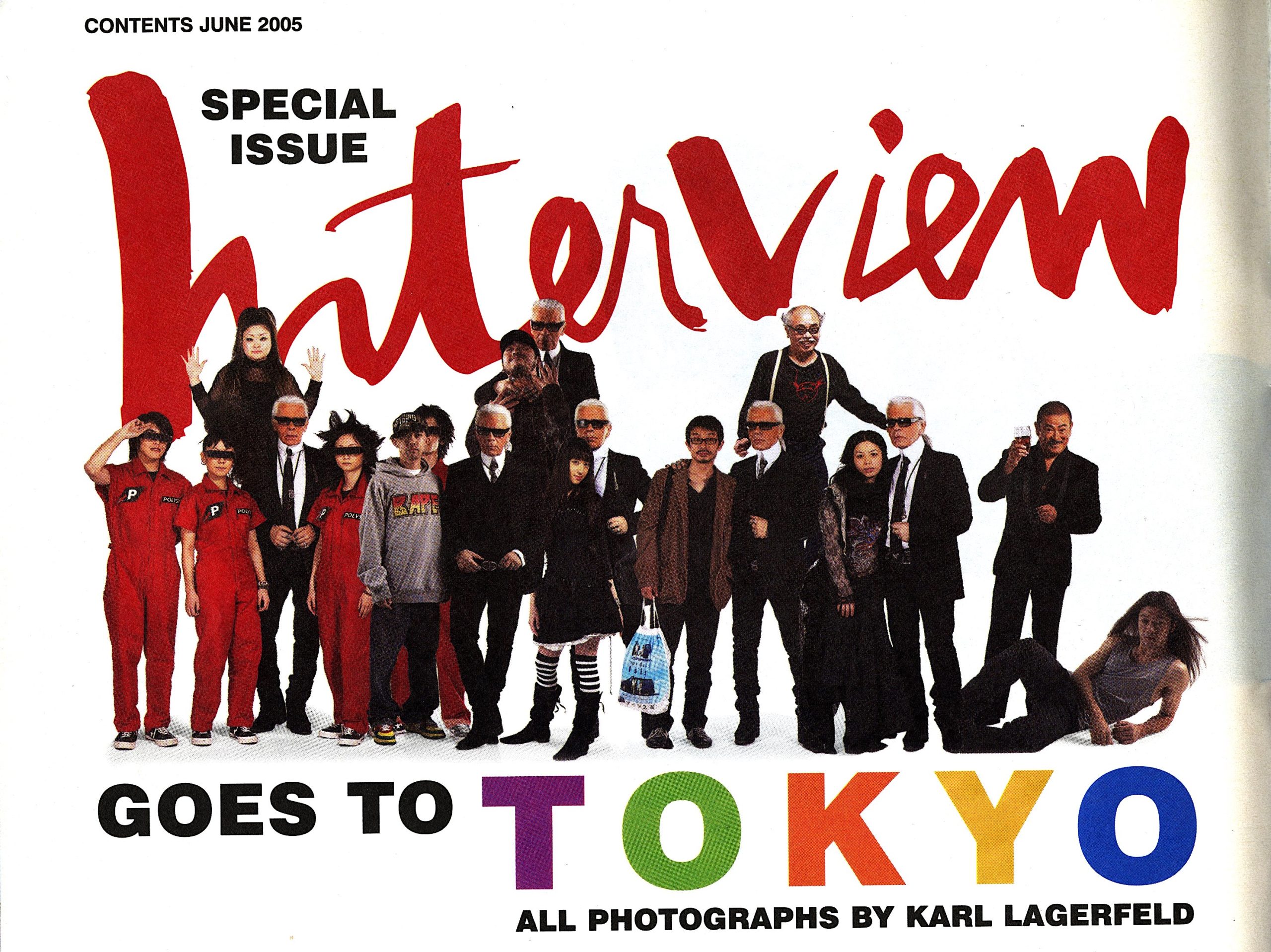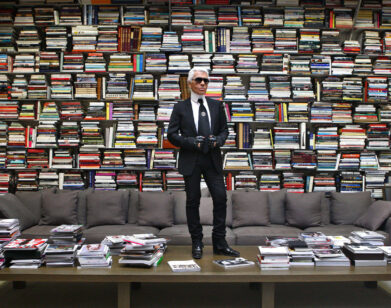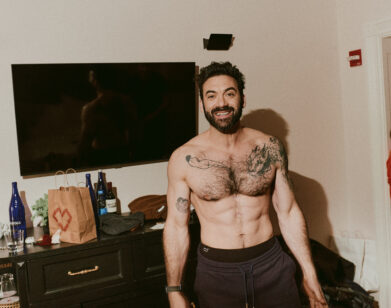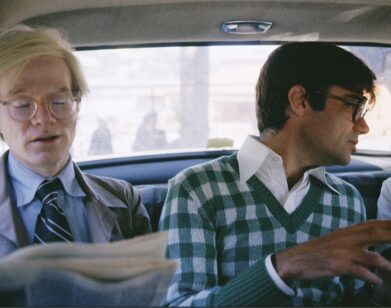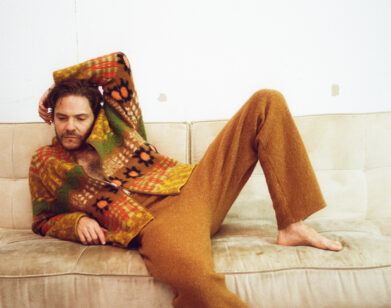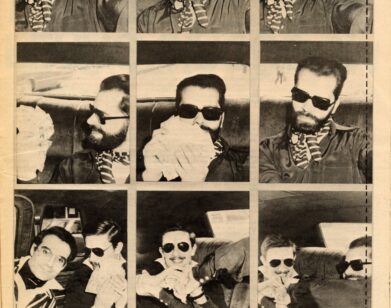the vault
From the Vault: Nigo and Pharrell on Sneaker Drops and Bootleggers
This is The Vault, our bi-weekly column in which we revive a conversation from deep in the archives for your viewing pleasure. This time, to mark Kenzo’s upcoming Fall/Winter 2022 collection in Paris—the label’s first under its newly appointed artistic director, Nigo—we dust off our highly-covetable Karl Lagerfeld-helmed June 2005 issue, featuring the prolific BAPE founder on the cover. Inside, Nigo talks with his friend and Billionaire Boys Club co-creator Pharrell Williams about his burgeoning streetwear empire and his plans to transform the world of high fashion from the inside out. With his new role at the Maison, Nigo becomes the first Japanese artistic director of the house since Kenzo Takada himself resigned in 1999—a mantle that the 51-year-old designer is ready to bear: “I was born in the year that Takada Kenzo-san opened his first store in Paris,” Nigo told Pharrell, “We both graduated from the same fashion school in Tokyo.” His first show for Kenzo takes place on Sunday, January 23rd at 11 a.m. in Paris—fans of the rebellious hype-head and the iconic Maison alike can tune in for the live stream here. So go ahead, dive in.
———
Just over a dozen years ago, a young designer and stylist by the name of Nigo opened a tiny clothing shop in Tokyo and began bringing his passion for American-style urban streetwear to Japan’s fashion-obsessed youth. Today that line, called A Bathing Ape (or BAPE, the abbreviation by which the collection is known throughout Japan), encompasses a variety of items and can be found at any of 20 Nigo-owned operations, including a recently opened outpost in New York City’s SoHo. Add to this a variety of other enterprises—from a sneaker emporium called Foot Soldiers to a restaurant called BAPE Cafe and a number of clever marketing devices that have succeeded at enhancing the brand’s feeling of exclusivity, and it’s not hard to understand why Nigo is viewed in Japan as the man with the Midas touch. Here, Nigo speaks with musical innovator and fellow hip-hop entrepreneur Pharrell Williams, with whom the designer and tastemaker recently collaborated on a pair of limited-edition sunglasses for Louis Vuitton, as well as on still more branches of his ever-growing empire.
———
PHARRELL WILLIAMS: So, tell me about your background.
NIGO: I have one older brother and my parents. My brother has a son now. That’s pretty much it for my immediate family.
WILLIAMS: What was your childhood like?
NIGO: Until the first year of junior high I was top of my class. Then, in the summer of my freshman year, I started to get really interested in clothing, so I stopped studying and looked at all the Japanese fashion magazines instead. I got into looking at Levi’s and how different eras had different styles.
WILLIAMS: How did you get so interested in fashion?
NIGO: From fashion magazines and from the clothes I saw music people wearing. My freshman year I got into Run-D.M.C., so I bought the Adidas pretty much anything from the West, whether it was records or clothing.
WILLIAMS: Speaking of records, how did you get into music?
NIGO: I started to get into it the same time I started to get into fashion; I started to get into the Beatles right at the beginning. There was nobody in junior high who was into the Beatles when I was in school. In Japan some people get into Western things, and for others it just doesn’t infiltrate at all.
WILLIAMS: How did your clothing label, A Bathing Ape, get started?
NIGO: I had a shop in Harajuku, with all these different kinds of fashion items. From there I started to design my own clothing for the store. That was in ’93.
WILLIAMS: And what’s the philosophy behind your clothes?
NIGO: It’s just clothing that I’d want to wear, more American than European in style.
WILLIAMS: Well, speaking of America, you just opened your first store there, in New York City’s SoHo.
NIGO: Yeah, I wasn’t sure where to put it at first, but I’m happy with SoHo.
WILLIAMS: What are the differences between Japan and the USA?
NIGO: You know, in America nobody ever used to line up to buy sneakers, but now it’s starting to happen. Both cultures are getting similar in that way.
WILLIAMS: From all the times that I’ve gone to Japan, the thing that I noticed is that Japan is made up of connoisseurs who enjoy different cultures. That’s what I found so interesting. Anyway, let’s talk about the expansion of A Bathing Ape from the clothing label into music, art, cafés, and the hair salon.
NIGO: I was just basically trying to make my life easier—like, whatever I needed in my life, l’d just make. I needed a beauty salon, so I put one in my store.
WILLIAMS: I admire that. What are your interests outside of music and fashion?
NIGO: I’m interested in everything from art to furniture—anything that would be considered lifestyle.
WILLIAMS: What were your inspirations growing up in Tokyo?
NIGO: It’s just clothing that I’d want to wear, more American than European
style.
WILLIAMS: What other worlds would you like to conquer?
NIGO: I’d like to build a hotel and to create an amusement park—like building a dentist’s office with a roller coaster on top of it.
WILLIAMS: That would be incredible!
NIGO: I’m into airplanes, too.
WILLIAMS: Yes, we all are. [Nigo laughs] So, the BBC [Billionaire Boys Club, the line designed jointly by Pharrell Williams and Nigo for Reebok], how does it differ from Bathing Ape?
NIGO: Bathing Ape is my thing, and BBC comes from your ideas. It’s a collaboration, so I can make things that I could never make otherwise.
WILLIAMS: Wow, such a compliment.
NIGO: If I hadn’t met you, I would never have done the Ice Cream shoe company [another joint venture between Williams and Nigo for Reebok].
WILLIAMS: That means a lot. What do you feel is the secret of your success?
NIGO: The theme of my life is, “Life is a game.” I’ve never really thought about success, about what I did in the past, or what might happen in the future. I’m just trying to make the moment exactly what I want it to be.
WILLIAMS: What do you want to say to the bootleggers?
NIGO: That if you have enough creativity, or energy to be a bootlegger, why don’t you just make your own thing? But then it also shows my own status and how successful my line is, because nobody bothers to rip off what you do unless you’ve succeeded.
WILLIAMS: In other words, you’re saying, “Get off my dick!” [Nigo laughs] Anyway, man, I just want to say thank you for embracing me and helping to make my dream come true. Every time we make a new shoe, a new shirt, or a pair of jeans, it adds another chapter to my dream coming true. It’s rags to riches. So, is it only going to be the big store here in the USA, or are you going to bring the gallery, the haircuttery, and all those other things here, too?
NIGO: Maybe a café, but it might be hard.
WILLIAMS: Any plans on distributing the toys that you make over here or even bringing over the toy store?
NIGO: Well, in the summer I want to try to do something different with the toy stuff, so I might not bring it over here quite yet.
WILLIAMS: You’ve got to make some grown-up-size furry bedroom slippers, like the ones you make for kids.
[Nigo shakes his head “no”]
WILLIAMS: I wear them! [laughs] Because, here’s the thing, I try to find SpongeBob slippers all the time, and they never make them for grown-ups. I like wearing slippers around my crib with a girl—if you got them on, it lets her know you got a fun side to you too. So, do you enjoy being an anonymous figure in Japan, but one with power and respect at the same time?
NIGO:I guess I’ve never really thought about it, but it’s a position that hasn’t really existed in the past.
WILLIAMS: I feel the same way. Like, before we had any sort of record sales or clothing sales, we were considered weird. There are definitely more people like us, but we’re two of a group of individuals who celebrate expression, and people are beginning to appreciate that now.

